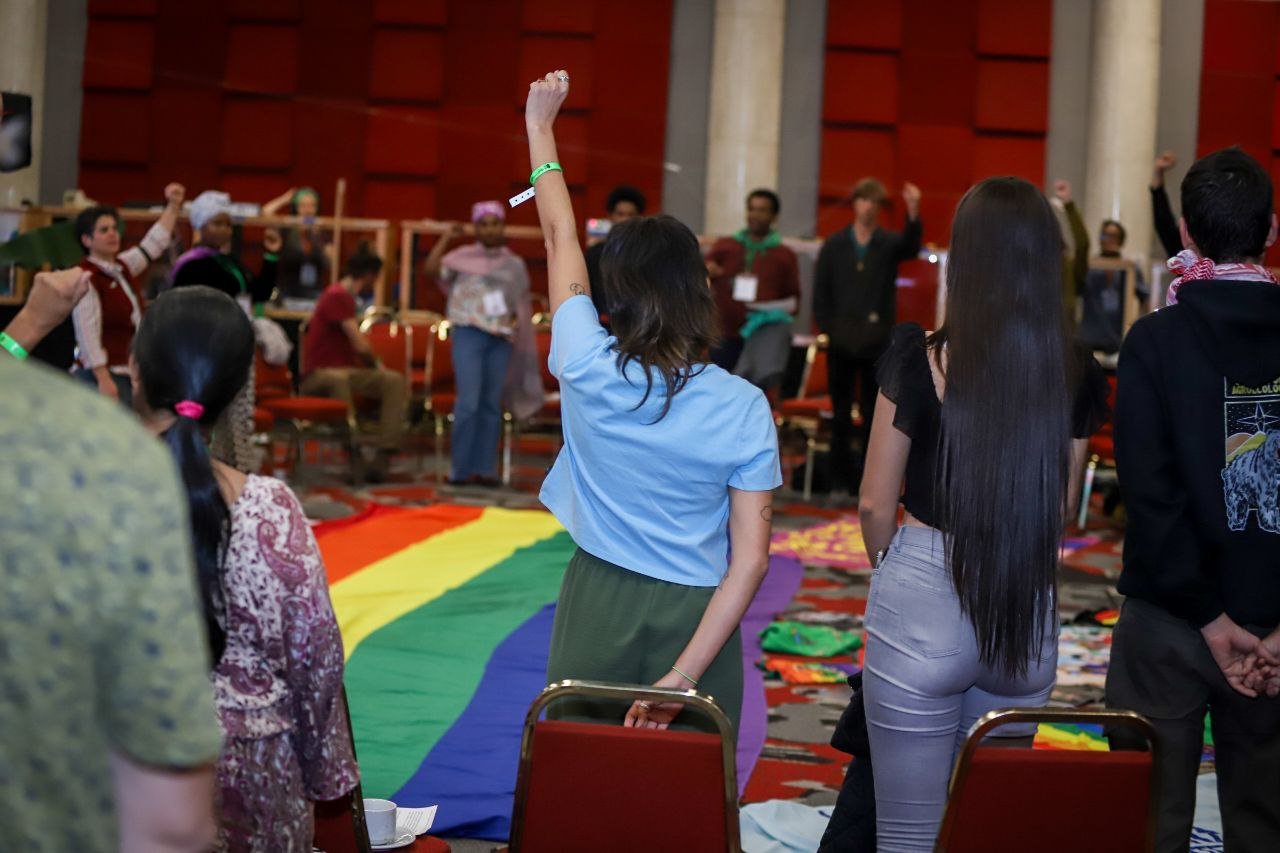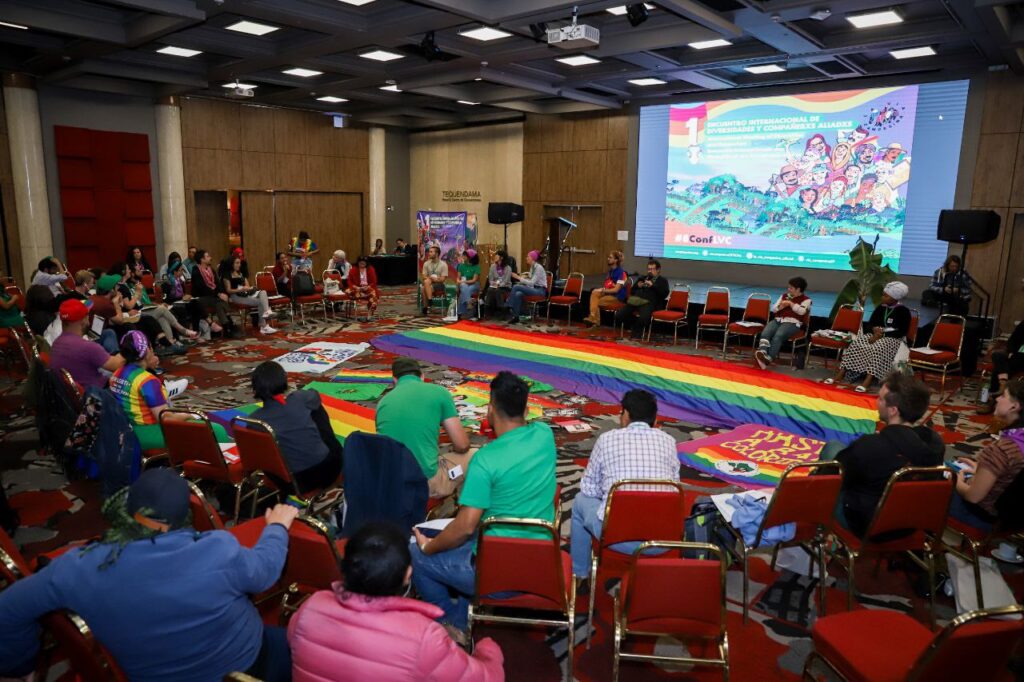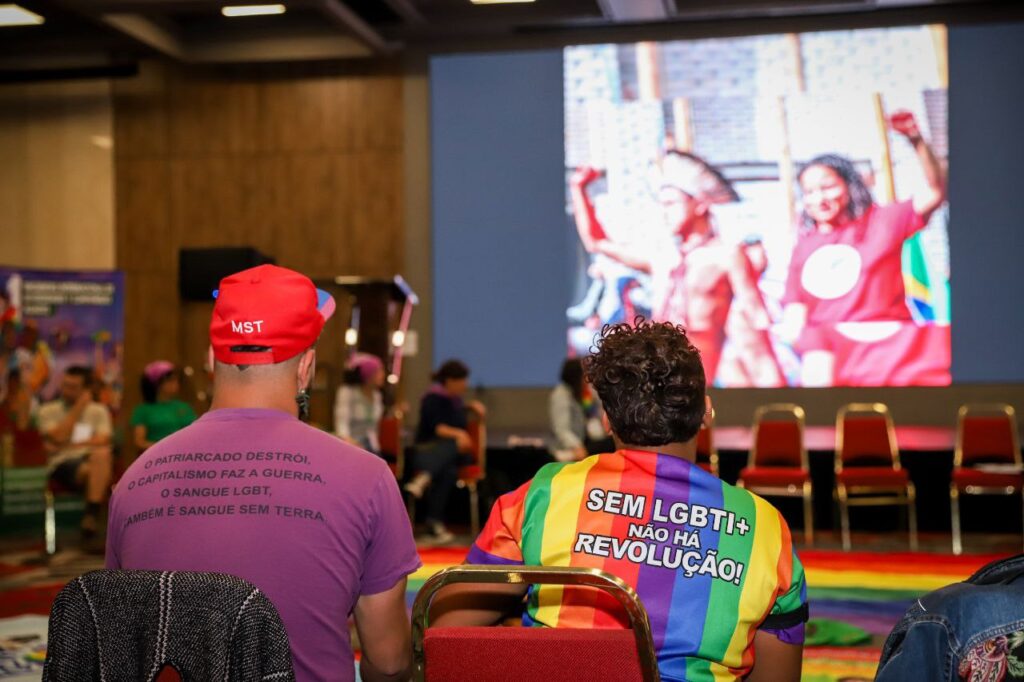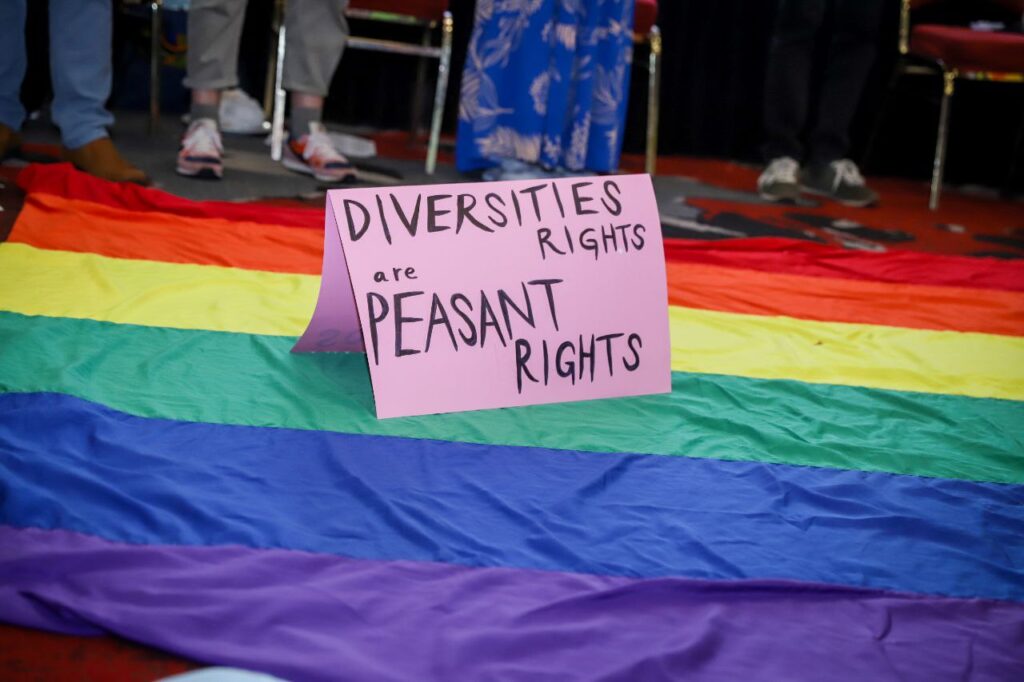La Via Campesina holds the first meeting on Diversities

The meeting brought together movements from all continents and opened a formal debate on the issue. In order to combat the patriarchal and discriminatory structures that maintain the dominant economic model in the countryside, peasant organisations from different parts of the world held a meeting on diversity in Bogota, the capital of Colombia, on Saturday (2 December).

“Our diversity spaces come from afar, because we always existed in movements, but we never had a meeting at an international level like this one,” says Vinícius da Silva, a member of the Landless Rural Workers Movement (MST).
A member of the Latin American Agroecology Institute and the movement’s LGBTI+ Collective, Vinicius explained that the space allows for the exchange of reflections based on different realities and that the sexual and gender discussion is entirely linked to the struggle for agrarian reform and food sovereignty.
“We cannot separate who we are, our sexual orientation, our gender identity from the struggle of the landless, from the struggle of the quilombolas, from the struggle of the rural population because we are talking about subjects,”
For Vinícius, “agrarian reform cannot be done without considering all subjects, the diversity of bodies and sexualities,” so it is important “to think about another affectivity, to reflect on the construction of gender roles and how much we deny affection. and freedom to our bodies.”
The activist also spoke of the particularities present in the field, such as the different responsibilities of men and women in their relationship with the work of the land, “are very marked and sometimes there is no room for other configurations”.
“These notions are also fed by agribusiness, which sells a model not only of production, but also of family. With its structures, including cultural structures, it maintains and promotes a hegemonic sexuality and conception of family, where there is no place for diversity. And if we talk about agribusiness, we talk about monoculture, and that monoculture also exists in affections, in bodies, in sexuality, and that is what we have to destroy”, she affirms.
Broadening the concept of ‘family farming‘
During the meeting, the movements issued a joint statement proposing to broaden the concept of family farming, “to rethink peasant family farming and to include our chosen families, a diversity of people and ways of living and working together”.
“We want to stay in the field, to build organization as many are doing, in the face of the alliance of systems of oppression that exist between capitalism, patriarchy, racism and colonialism,” they say.
For Cony Gonzalez, an activist with the National Coordinator of Organizations of Working, Rural and Indigenous Women of Paraguay (CONAMURI), the agendas of rural and peasant feminism are connected to LGBTQIAP+ struggles.

“We understand that the proposal of peasant feminism is linked to diversity because of the anti-patriarchal and anti-capitalist vision of the movement. We talk about working revolutions and women’s revolutions go hand in hand with diversity, so we needed to put this issue on the agenda,” Cony said.
According to Gonzalez, the collectives are not “separate from Via Campesina, we are united and this should help us to articulate an emancipatory political project that denounces inequalities with our people and our bodies”.
Vinícius agrees that this Saturday’s meeting was a step forward and that “there is still a lot of work to be done”. According to the MST member, “this is a debate that is not homogeneous in the organizations, in the regions, since each one has its limits depending on the multiculturalism and the accumulation of this discussion”.
By Lucas Estanislao, Brasil de Fato, December 3, 2023.

